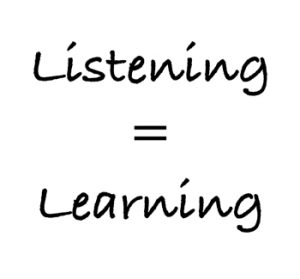 NSL believes that as powerful as storytelling can be, there is an even greater power contained in the act of listening. Without a listener, the story goes unheard. To listen is a way of sharing power, allowing another’s experience to touch my own. It displays a radical vulnerability to change. Those in power have no incentive to listen if it means they risk losing their position. So power and receptivity go together.
NSL believes that as powerful as storytelling can be, there is an even greater power contained in the act of listening. Without a listener, the story goes unheard. To listen is a way of sharing power, allowing another’s experience to touch my own. It displays a radical vulnerability to change. Those in power have no incentive to listen if it means they risk losing their position. So power and receptivity go together.
When people feel oppressed, when they feel they have no voice, their way to force people to pay attention is often through acts of violence. That forces people to listen. But there has to be another way.The strategic challenge for those struggling for change is how to get a hearing. You can get angry, you can make a scene, you can make demands, you can argue. But while we all have a right to speak, no one as a right to be heard. That has to be earned.
In that endeavor, we must practice the Listening Contract and create a space for mulitiple voices. If when I hear you, I am also hearing that you have heard me, I am more inclined to lend an ear, to stay engaged. Ways of doing that include referencing the other’s words, in phrases such us, ” As I heard you say….” and ” When you mentioned that….”
Keep sending signals, echoes, gestures, indications that the other’s words count, and you will increase the chances they will do the same.
As an experiment, we ask Fellows to notice how many fights flare up not because people disagree but because people do not listen. And how often we are debating what we actually agree on, but only discover that when we calm down.
If NSL wants a hearing for its Fellows, it must teach them to give a hearing to those who have a different view.

